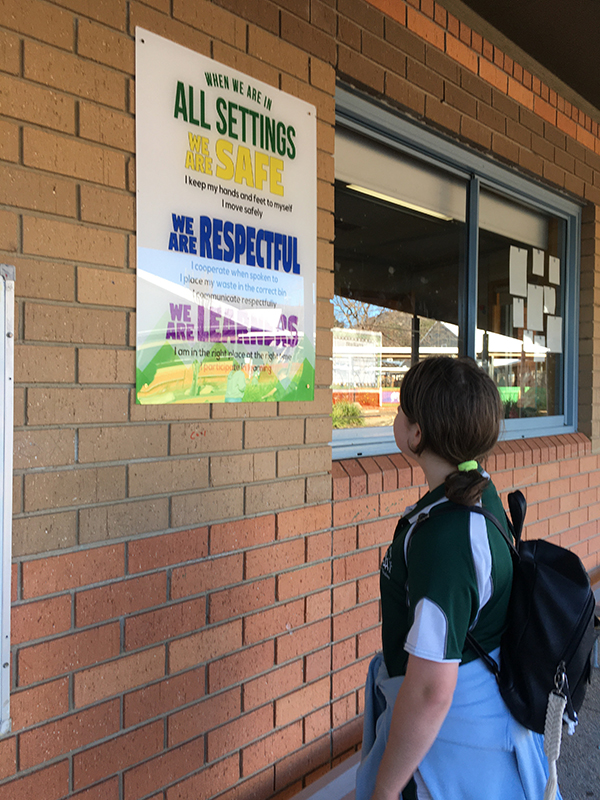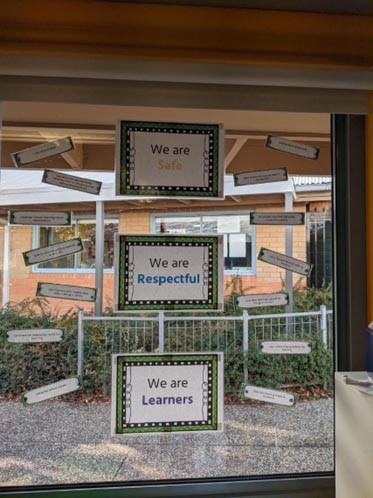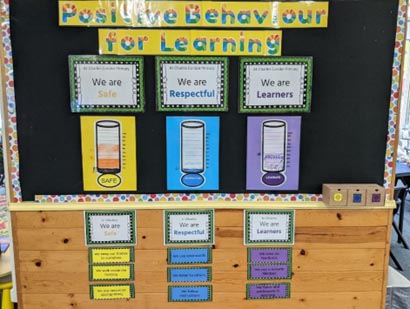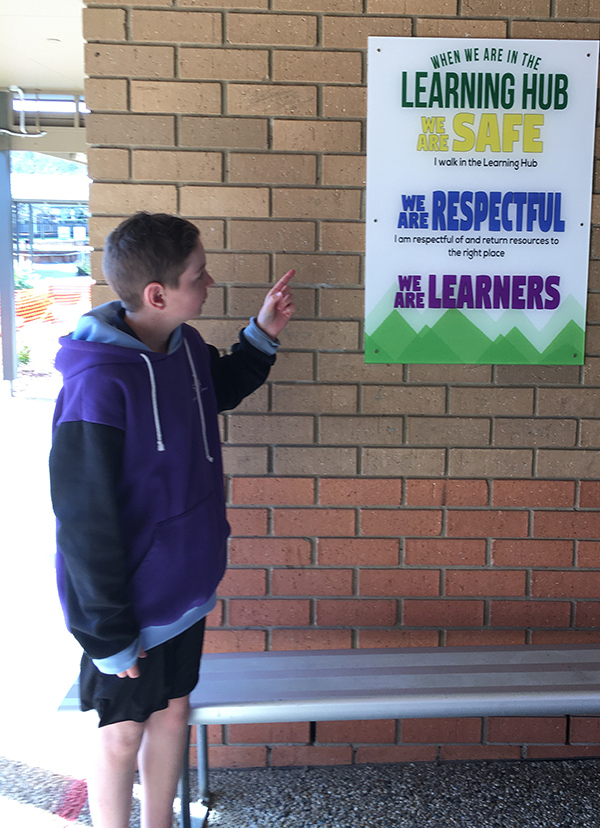
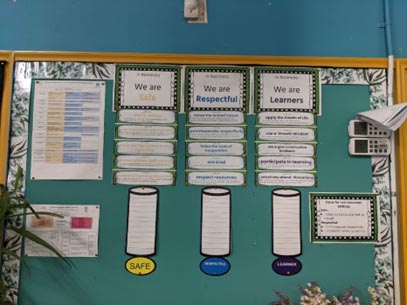
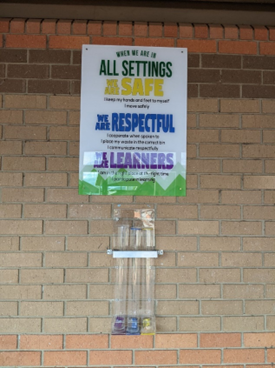
Positive Behaviours for Learning P.B.L
Positive Behaviour for Learning (PBL) is a framework that schools use to get everyone – students, staff, families and the school community - on the same page to create a safe and supportive learning environment for all students. PBL is an international evidence-based whole school process which can be implemented in any school setting to support students from Pre-school through to Year 6.
At Charles Conder our three Expectations are; Be Safe, Be Respectful, Be a Learner.
These clear expectations and rules use positive language, for example "walk" instead of "don't run". This is done for all areas across the school and all people involved in the school community. Students and families have been involved in this decision-making process.
Once everyone has agreed to the expectations, a system is designed to acknowledge students for following the expectations. Each school community decides how they would like to do this. Some students may work towards extra break time, a principal's lunch or a special disco, depending on the school, the age of students and what the school community has agreed on together. At Charles Conder we have termly targets that the whole school works towards. These are acknowledged in each Learning House.
These clearly defined set of expected behaviours (expectations and rules) are backed up by teaching procedures and procedures for acknowledging expected behaviours as well as responding to other behaviours. School communities also work together to decide on what happens when things don't go according to plan. PBL uses an educative approach so there is the opportunity for students to get back on track.
What are the benefits of PBL?
When PBL is implemented teachers and students have more time to focus on relationships and classroom instruction. Students and staff benefit from:
- increased time focused on instruction
- improved social-emotional well- being
- positive and respectful relationships among students and staff
- reduced inappropriate behaviour
- better support for teachers to teach, model and respond effectively to student needs
- a predictable learning environment where staff and students know what is expected.
PBL establishes a continuum of support that helps students with diverse academic and social needs. The continuum is aligned with Trauma and Neuroscience Informed Education practices. All students receive supports that are for everyone, some students need additional support with specifically designed strategies and a few students need intensive wrap-around support to help them to engage at school.

